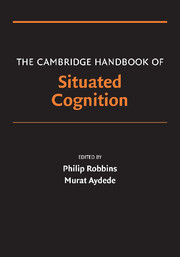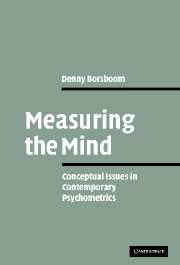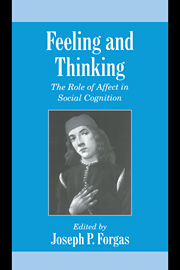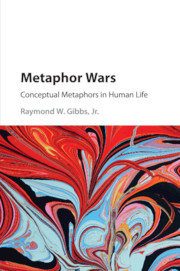The Cambridge Handbook of Situated Cognition
Since its inception some fifty years ago, cognitive science has seen a number of sea changes. Perhaps the best known is the development of connectionist models of cognition as an alternative to classical, symbol-based approaches. A more recent - and increasingly influential - trend is that of dynamical-systems-based, ecologically oriented models of the mind. Researchers suggest that a full understanding of the mind will require systematic study of the dynamics of interaction between mind, body, and world. Some argue that this new orientation calls for a revolutionary new metaphysics of mind, according to which mental states and processes, and even persons, literally extend into the environment. This book is a guide to this movement in cognitive science. Each chapter tackles either a specific area of empirical research or specific sector of the conceptual foundation underlying this research.
- Includes chapters on historical background so the reader can trace development of the field from its origins
- The chapter authors are all leading experts in psychology, neuroscience, linguistics, philosophy, or allied fields
- Presents critical debate on foundational issues, enabling insight into current controversies and provokes discussion
Product details
No date availablePaperback
9780521612869
526 pages
254 × 178 × 28 mm
1.08kg
3 tables
Table of Contents
- Part I. Backdrop:
- 1. A short primer on situated cognition Philip Robbins and Murat Aydede
- 2. Scientific antecedents of situated cognition William J. Clancey
- 3. Philosophical antecedents of situated cognition Shaun Gallagher
- Part II. Conceptual Foundations:
- 4. How to situate cognition: letting nature take its course Robert A. Wilson and Andy Clark
- 5. Why the mind is still in the head Fred Adams and Kenneth Aizawa
- 6. Innateness and the situated mind Robert Rupert
- 7. Situated representation Mark Rowlands
- 8. Dynamics, control, and cognition Chris Eliasmith
- 9. Explanation: mechanism, modularity, and situated cognition William Bechtel
- 10. Embedded rationality Ruth Millikan
- Part III. Empirical Developments:
- 11. Situated perception and sensation in vision and other modalities: from an active to a sensorimotor account Erik Myin and Kevin O'Regan
- 12. Spaces of thought Barbara Tversky
- 13. Remembering John Sutton
- 14. Situating concepts Lawrence W. Barsalou
- 15. Problem-solving and situated cognition David Kirsh
- 16. The dynamic interactions between situations and decisions Jerome R. Busemeyer, Ryan K. Jessup and Eric Dimperio
- 17. Situating rationality: ecologically rational decision making with simple heuristics Henry Brighton and Peter M. Todd
- 18. Situativity and learning R. Keith Sawyer and James G. Greeno
- 19. Language in the brain, body, and world Rolf A. Zwaan and Michael P. Kaschak
- 20. Language processing embodied and embedded Michael Spivey and Daniel Richardson
- 21. Situated semantics Varol Akman
- 22. Is consciousness embodied? Jesse J. Prinz
- 23. Emotions in the wild: the situated perspective on emotion Paul Griffiths and Andrea Scarantino
- 24. The social context of cognition Eliot R. Smith and Frederica R. Conrey
- 25. Cognition for culture Michael Tomasello and Felix Warneken
- 26. Neuroethology: from morphological computation to planning Malcolm A. MacIver.







